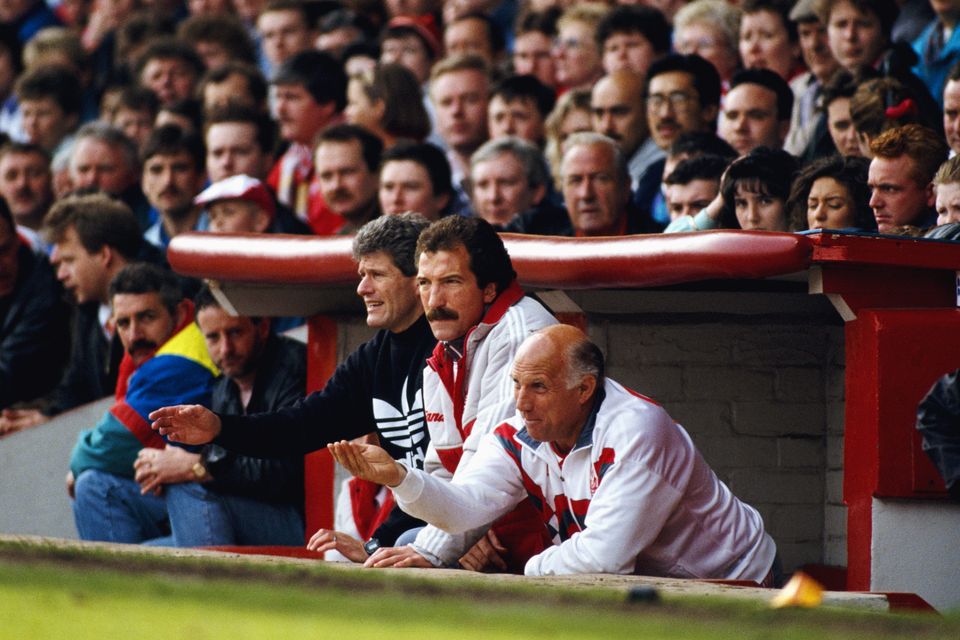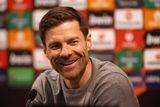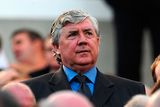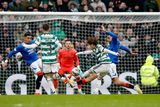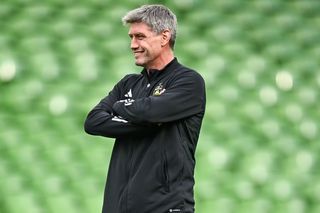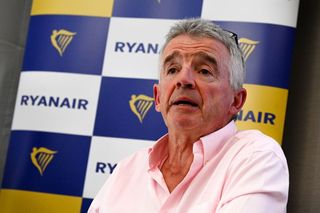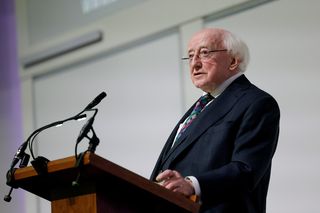Dion Fanning: Liverpool need to feel the rage, just not on the Souness scale
Graeme Souness during his time as Liverpool boss
At the Ataturk Stadium, Istanbul in 2005, a man in the queue for hamburgers was wearing a piece of history. He insisted that the Liverpool scarf round his neck had once belonged to Bill Shankly.
In 1977, he had approached Shankly at the airport in Rome the morning after Liverpool won the European Cup and asked him for an autograph. Shankly didn’t have a pen so he gave him his scarf instead. In Istanbul, the man allowed people to hold the scarf and touch it as if it were Padre Pio’s glove.
Liverpool and its history have always been connected. Istanbul became a transcendent occasion but it nodded to history even as the night became part of it. During the penalty shoot-out, Jamie Carragher reminded Jerzy Dudek of Bruce Grobbelaar’s off-putting routine when Liverpool won the European Cup in 1984. The hand of history was on their shoulders and pointing to their wobbly knees.
On nights like that, Liverpool embrace and escape their history simultaneously, but too often they are cornered by it.
Liverpool play at Wembley today, a place they used to visit regularly. “The only exercise I get,” Bob Paisley said of his walk from the tunnel to the dug-outs in the old ground before they demolished it and built a monstrosity whose proudest boast would be the several thousand toilets on site.
Liverpool’s last appearance at the old Wembley was historic too but only as a warning to others. Simon Hughes’ excellent new book Men in White Suits deals with Liverpool in the 1990s, a decade which seemed to reach a climax of preposterousness on that Cup final day when they turned up to play Manchester United.
Read more:
25 May 2005; Steven Gerrard, Liverpool captain, lifts the cup as his team-mates celebrate. UEFA Champions League Final, Liverpool v AC Milan, Ataturk Olympic Stadium, Istanbul, Turkey. Picture credit; David Maher / SPORTSFILE
Read more:
The two great operatic figures in Hughes’s book are Graeme Souness and Robbie Fowler, while the men in white suits are dismissive of the idea that their Cup final suits were significant.
The sadness of Fowler’s story is that it is rarely considered a sad story. Perhaps the absence of sadness is because Fowler seemed to enter a contented and effortless middle age in his late 20s and he has remained in it ever since. How could a man so happy with his lot be seen as the lost talent of his generation? Fowler, it is worth repeating, is younger than Paul Scholes, yet injury had diminished him by the turn of the century.
“He had everything,” John Scales tells Hughes and it’s true. Fowler’s goals were beautiful things, each one inevitably a goal from the moment he had dispatched it.
The brilliance of Hughes’s book is that the story is told at times through unexpected characters. He didn’t interview Fowler, he says, because he is connected to the club today and might not say a lot.
Instead he talks to some on the margins like Nick Tanner — “I was a big shagger in those days, see” — while Erik Meijer provides insight into Fowler. “Robbie was better than Michael Owen. But Robbie was also living his life. Robbie was out with the boys. He enjoyed the booze. But that was part of him. He was a human being and this is a far more important thing. It was the way he’d grown up. Football and the pub belonged together.”
In the semi-final against Aston Villa in 1996, Fowler gave a compelling illustration of his gifts, scoring both goals as Liverpool went to Wembley, where it all went wrong. In the tense and ugly final, they were the side which slumped first.
The history Liverpool have been chasing then and now was not unique to them. Liverpool lost their ruthlessness and that was the difference between Liverpool and Manchester United in the 1990s. But wearing white suits was not an irrelevance. They wore them because of who they were, and who they were had a bearing on results, especially on days when it was lowdown and dirty.
United were not a team of kids. They had Schmeichel, Irwin, Bruce, Pallister, Keane and Cantona. Liverpool’s senior players provided less guidance and their young players had a different view of youth. Phil Babb and Jason McAteer were older than Roy Keane. Keane was the best player on the pitch in 1996 in a game which was about something other than being youthful. The Liverpool players of the time could never hide the sense that playing for Liverpool was tremendous fun. United knew that Alex Ferguson saw things differently and so they came to see things differently themselves.
For a few years, Liverpool also had a man who held them accountable, but without Graeme Souness’s ferocious need for accountability, they might not have made the mistakes that followed him as they scurried back to gentler traditions.
Souness’s great rage at the modern footballer is what makes him a TV personality but great and uncontrollable rage is not enough to be a manager.
For any normal observer of the human condition, this sense of rage at how little so many footballers are prepared to do would be entirely reasonable. It is less reasonable in a man who had to manage them.
Souness’s mood swings were tremendous. Jan Molby recalls Souness, who had previously exiled him in the reserves, handing him a grand in cash to take the team drinking after he had inspired them to victory against Auxerre. David Thompson remembers a day when Souness was his manager at Blackburn and Thompson ended up fighting his team-mate Craig Short at half-time.
The following week Souness called Thompson into his office but there was not the fine he was expecting. “I love all that,” Souness told him. “We were brilliant in the second half. Well done.” Souness then handed Thompson a £400 bottle of wine.
Souness, if anything, was undone by his surfeit of ruthlessness. He wanted it too much; he wanted others to want it too much as well; and then he wanted to know why they didn’t want it too much until it drove him mad.
The Liverpool job can do that. When Liverpool moved this season from mid-table to a position where they could challenge for the top four, a couple of articles hailed Brendan Rodgers for his coaching miracle. In a world without ruthlessness, this was indeed a great achievement. In the other world where Liverpool went on to lose to Manchester United and Arsenal, it wasn’t worth talking about.
Like the side in the '90s, this Liverpool side have found it hard to win when they had to win. They have become good at the soundbites, now they need to find their own history.
dfanning@independent.ie
Read more:
Read more:
